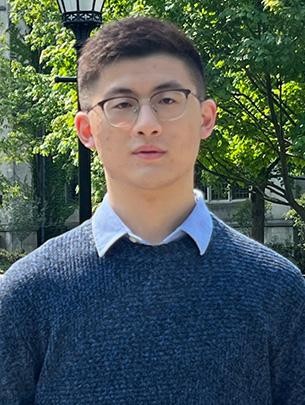University of Chicago fourth-year student Xavier Wu and alum Wesley Fang, AB’23, have been selected to the 2024 class of the Schwarzman Scholars program, which aims to cultivate global leaders and provide them with an understanding of China's role in shaping the 21st century.
Originally from Nanjing, China, Wu has not spent significant time in his home country since he moved to St. Louis to attend high school. Through the program, he will return to China next fall to pursue a master's degree in global affairs at Tsinghua University.

The one-year degree, which Wu likened to the College’s Core curriculum, offers an interdisciplinary blend of foundational courses and diverse electives, including leadership classes, social impact initiatives, entrepreneurship, etc. It also takes students on a one-month, immersive trip through various parts of China—from rural to industrial areas.
“I’m looking forward to embracing the opportunity and having this experience to understand the evolving global landscape better,” he said.
As an international student, Wu acknowledged the challenges of starting his career in the United States and expressed his eagerness to explore career paths beyond the conventional. He said he sees the Schwarzman program's career mentorship program as a crucial resource, offering personalized guidance from leaders across industries.
“I’m just hoping to see a greater perspective, which will allow me to solve a bigger problem,” he said. “I think this program will definitely give me a platform where I see the world from a better angle.”
Wu said the honor gives him a profound sense of recognition and will help ease his transition to the professional world.
“This helps me take a step back, take another look at myself,” he said. “I plan to use this year as an experience I’ll go into with an open mind. I'm excited, and I feel a sense of peace.”
Wu received interview support from the College Center for Research and Fellowships (CCRF), which supports College students and alums applying for nationally competitive fellowships.